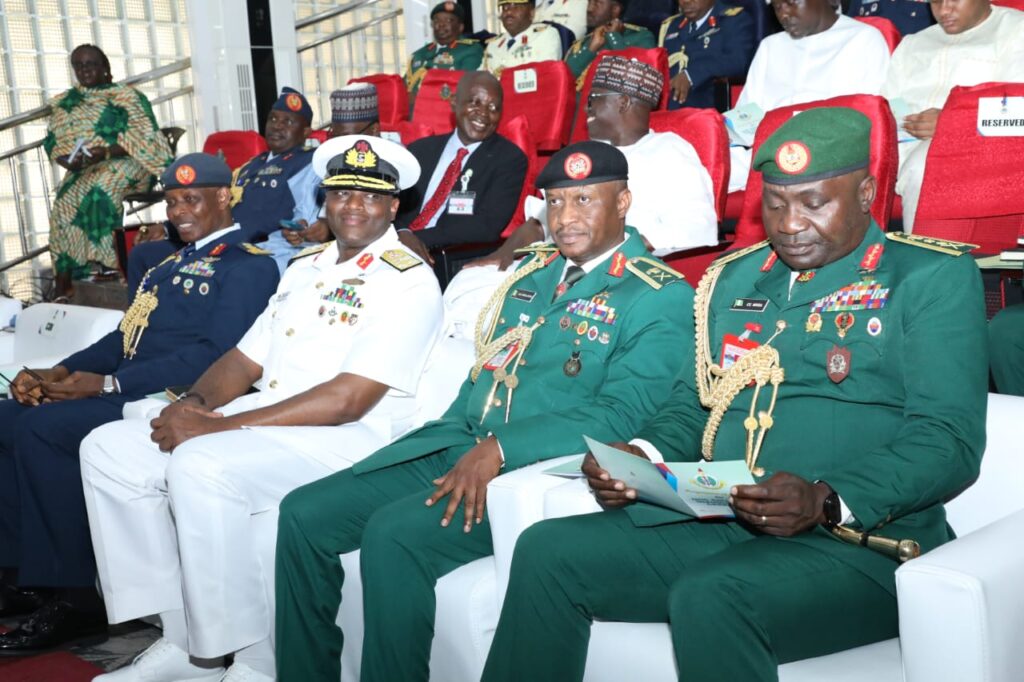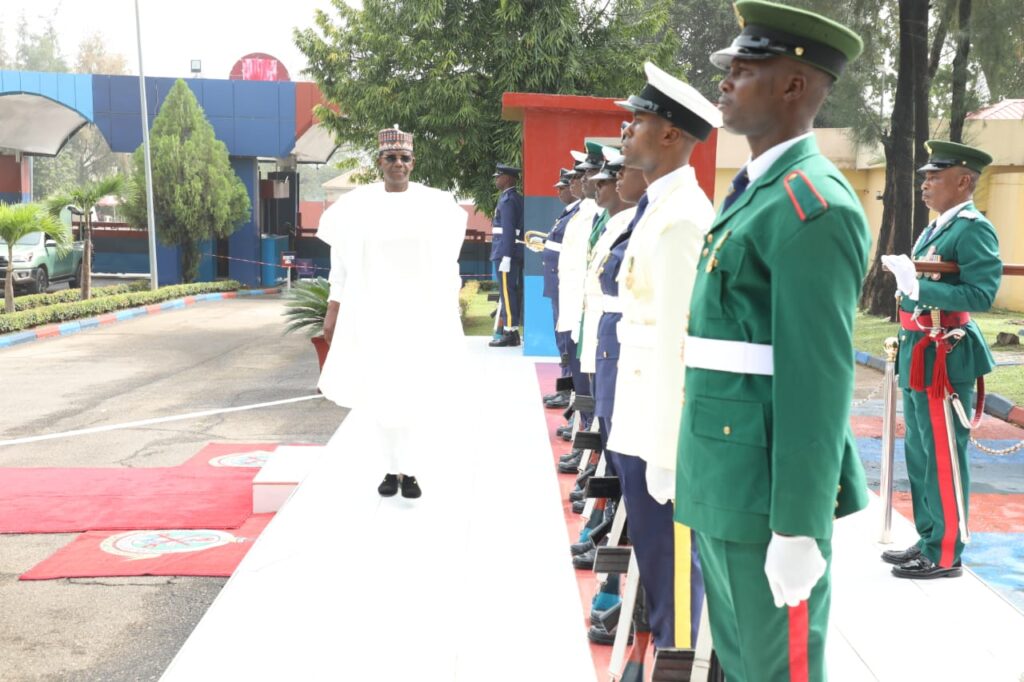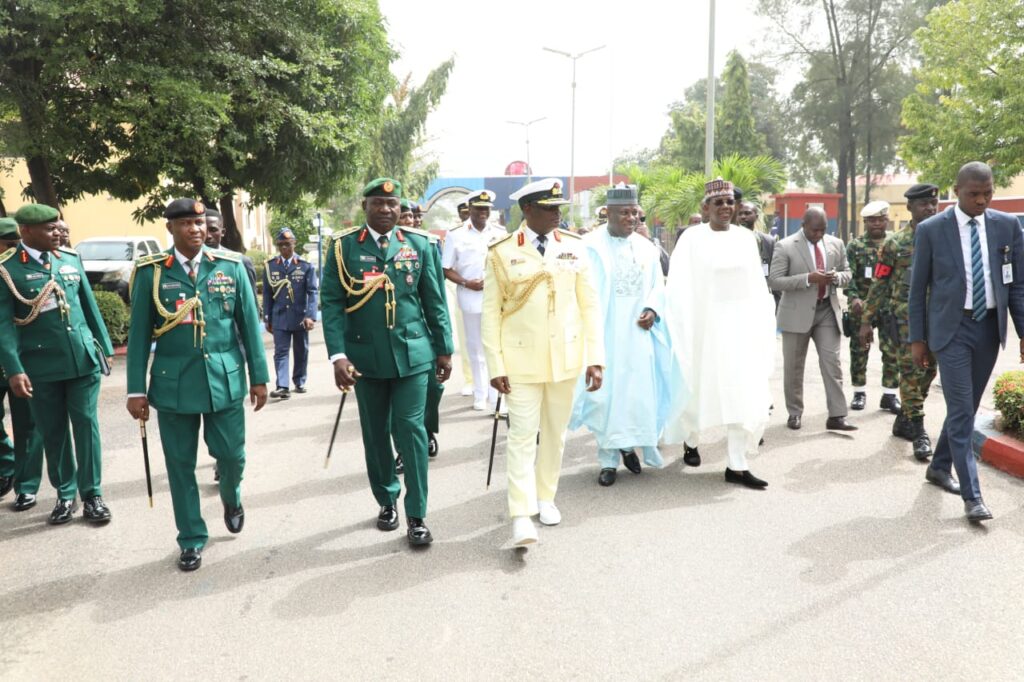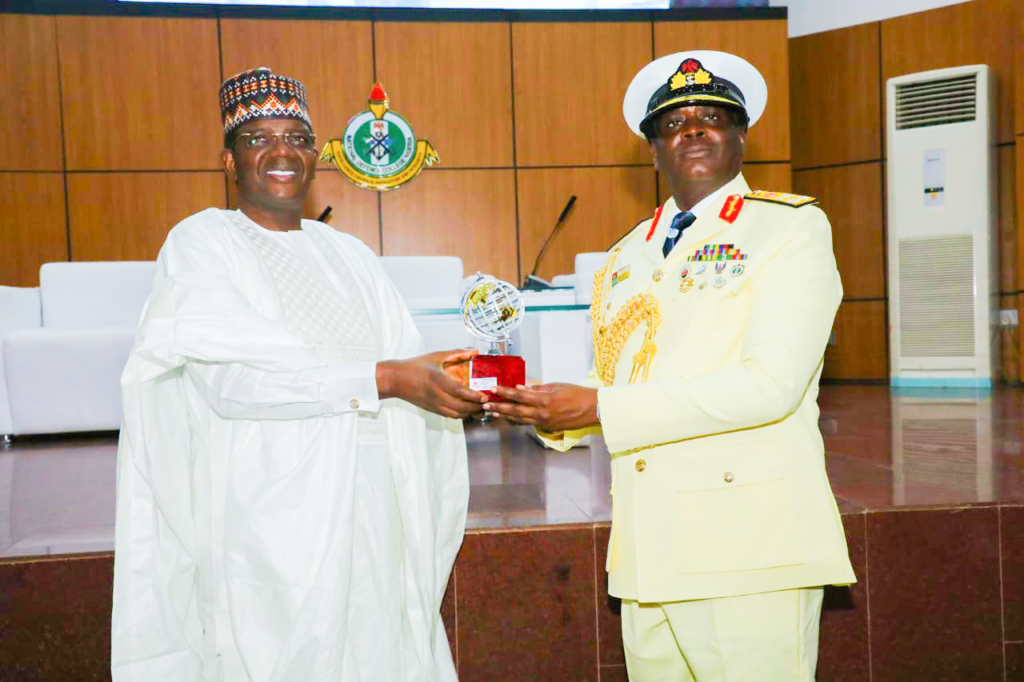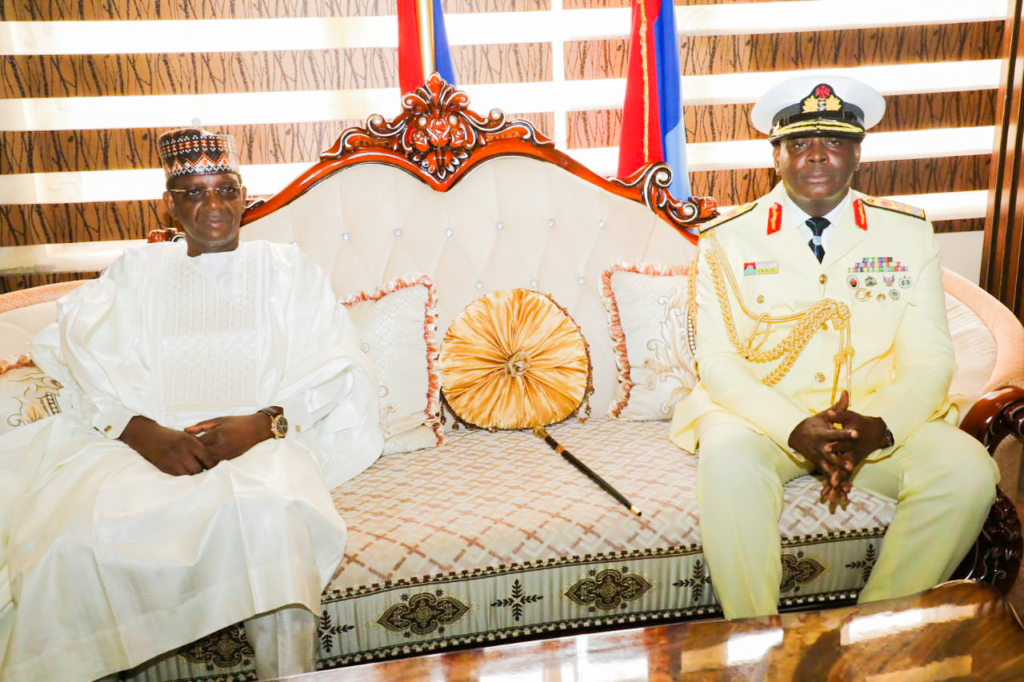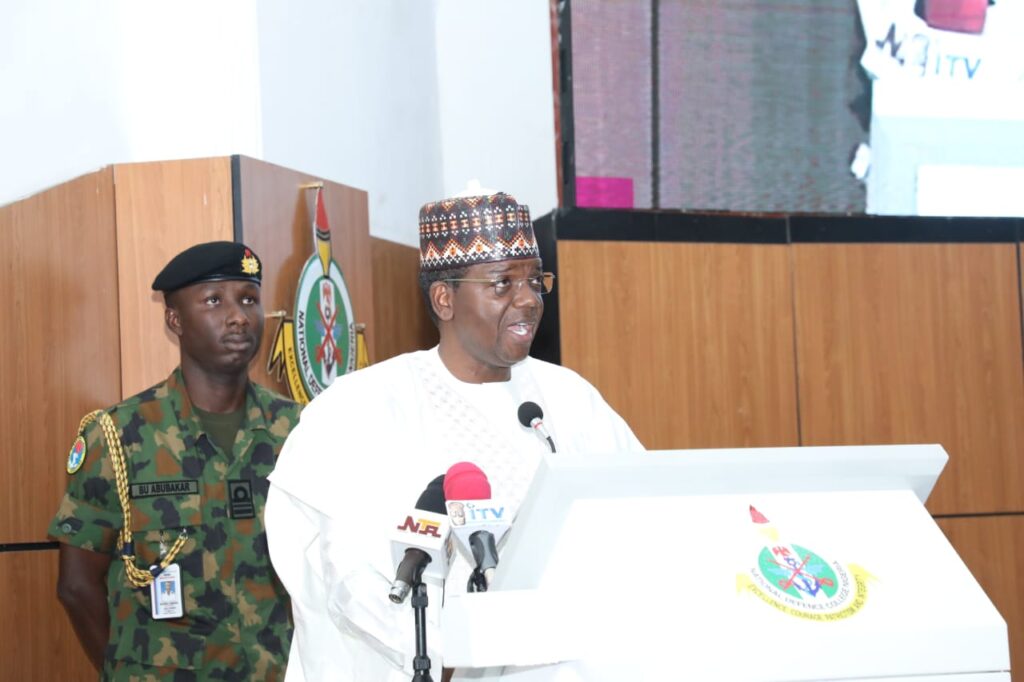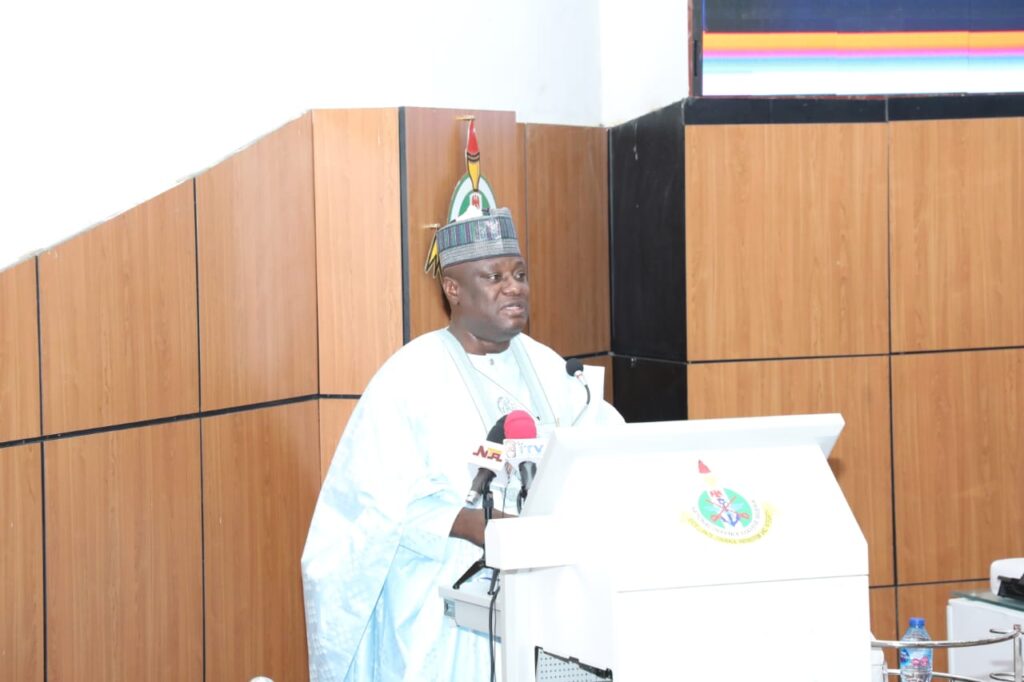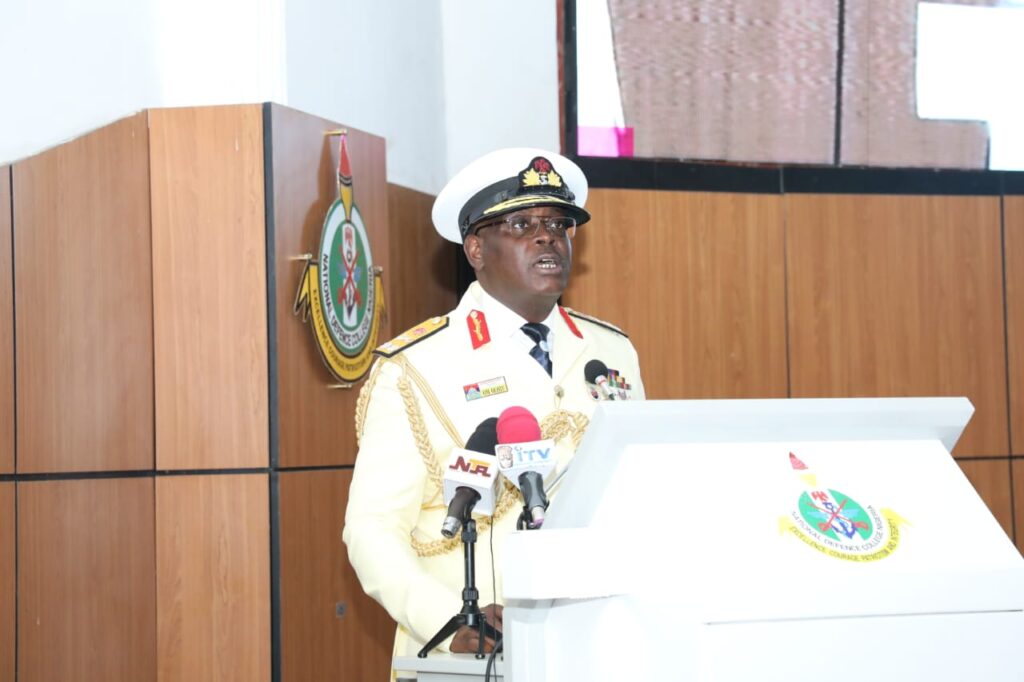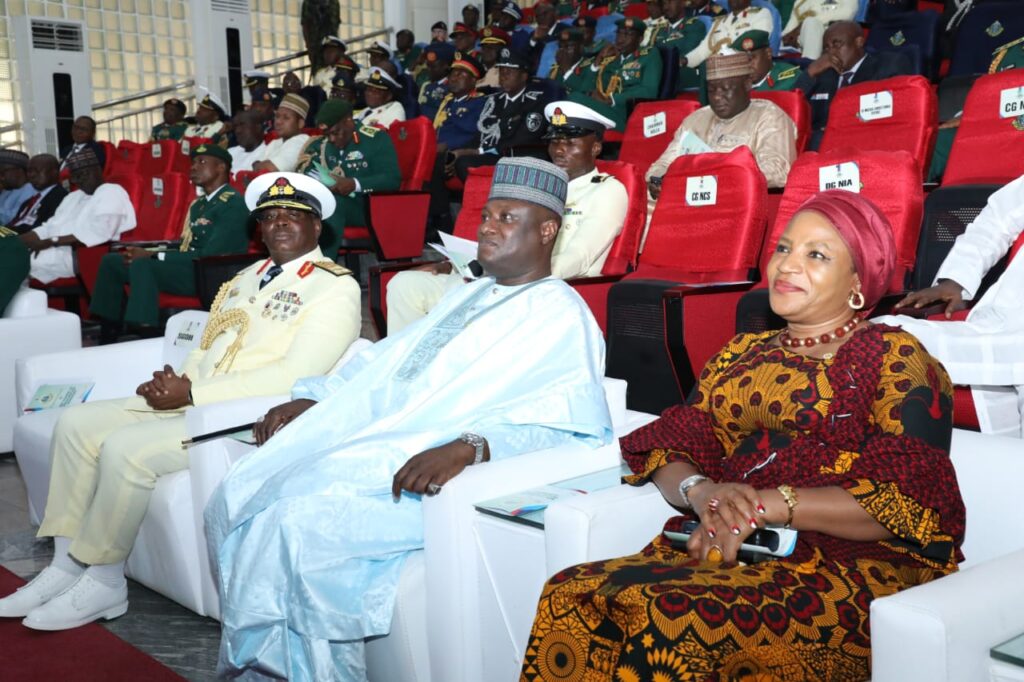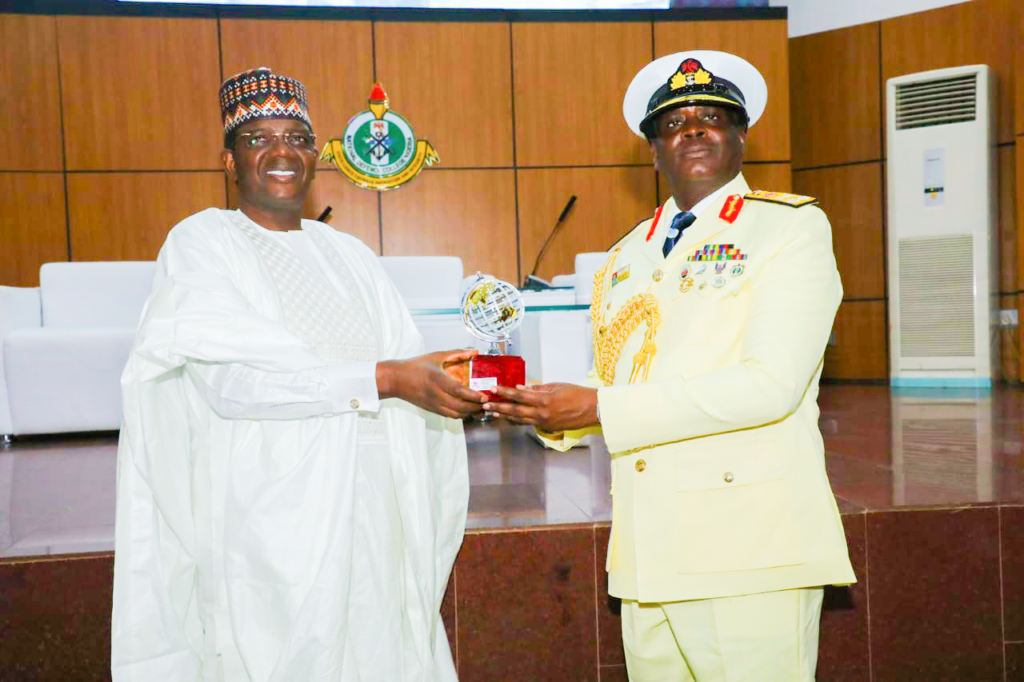National Defence College Nigeria Graduates 2,750 Participants In 31 Years
The Commandant, National Defence College (NDC), Rear Admiral OM Olotu says the College has graduated 2,750 participants comprising 2,466 from Nigeria and 296 officers from other countries in 31 years. Rear Admiral Olotu said this at the Inauguration Ceremony of NDC Course 32 with the Inaugural Lecture titled, “Strengthening National Unity for Security and Development in Nigeria,” delivered by Dr Ibrahim Abubakar Kana, Permanent Secretary Ministry of Defence on Friday in Abuja.
The Commandant said the College had, since its establishment in 1992, trained several senior military officers, police and other security agencies and strategic ministries of government, including senior military officers from friendly nations. He said the main objective of the college was to prepare the participants for optimal performance and appointment at the strategic level of governance.
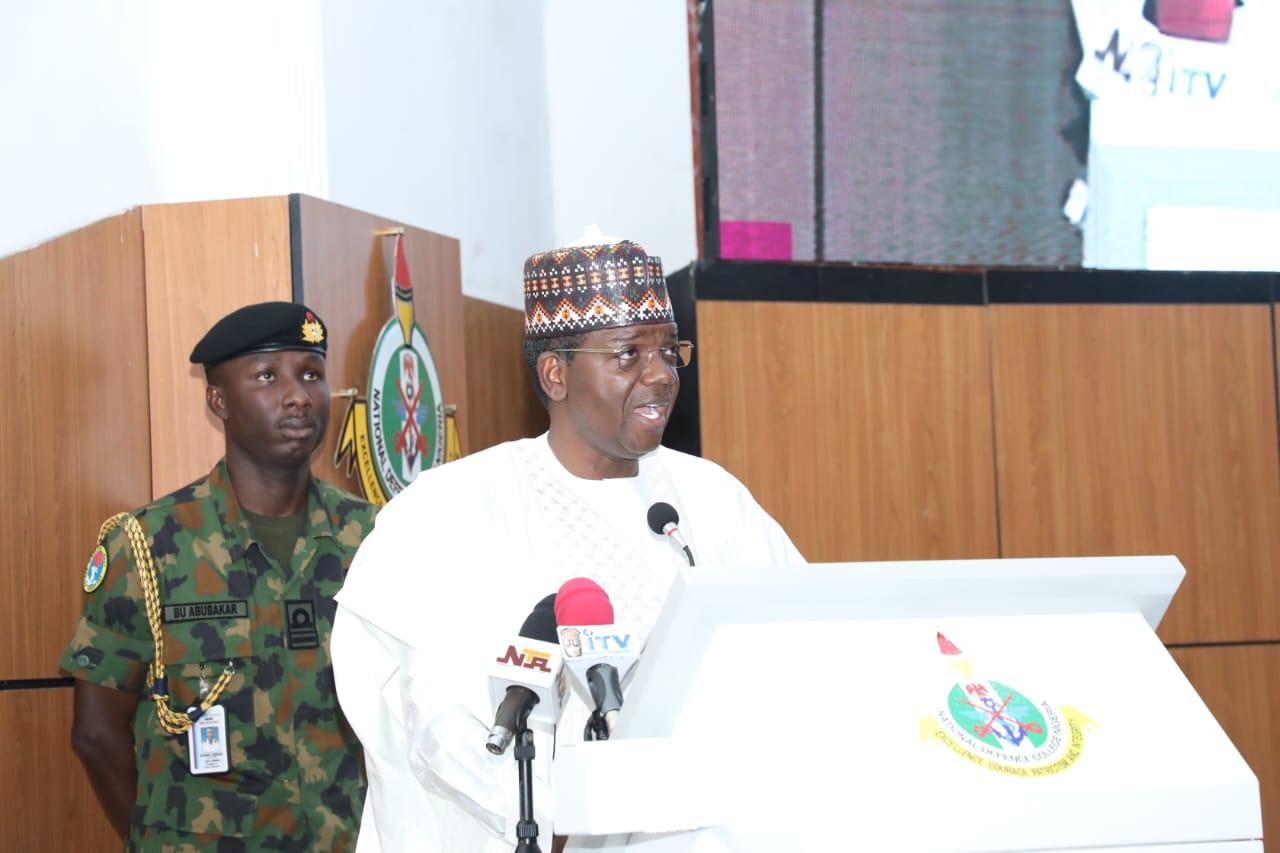
Admiral Olotu said Course 32 had a total of 108 participants comprising 68 senior officers from the Armed Forces of Nigeria, 6 participants from Nigeria Police Force, and 19 senior officers from other security agencies. Others were from strategic ministries, departments, and agencies of government.
He added that the course also had 15 international participants from 15 friendly countries, which included the Republic of Benin, Botswana, Brazil, Cote d’ivoire, Gambia, Ghana, Germany, India, Liberia and Mali. Others are Senegal, Sierra Leone, South Africa, Tanzania, Zambia, and Zimbabwe.
Welcoming the participants, Rear Admiral Olotu urged them to use the opportunity to prepare themselves for higher responsibilities in their various services and countries and also establish a strong bond of friendship with their colleagues. According to him, there is no doubt that democracy is gradually but steadily being entrenched in Nigeria as it is in most parts of the world and to a large extent, Nigerians are witnessing the dividends of democracy. “However, sectorial differences still prevail, thereby hindering the government’s efforts towards national security and development. Without national cohesion, issues of security and development will always be undermined, and this will pose a serious challenge for government at all levels.”
“This underscores the consideration of the topics selected for this all-important inaugural lecture, which is Strengthening National Unity for Security and Development in Nigeria,” he said. The Commandant said the Centre for Strategic Research and Studies of the College offered other professional training programmes beyond the strategic courses offered by the college. He said the participants would be expected to tackle the variety of conceptual, hypothetical, real, and simulated strategic level challenges for which there were no template solutions.
The essence, according to him, is for them to bring their ingenuity to bear, adding that they would be required to engage in extensive study and critical thinking to proffer strategies for tackling contemporary issues. “Moreover, you will be required to enter international policies, strategies, operations, resource management, and subset criteria on a variety of related subjects. These are encapsulated in various packages prepared for you, which are divided into nine modules.”
“Noteworthy is the fact that, in keeping with the complex and multidimensional nature of security and defence imperative, participants will be groomed in several thematic areas such as the state and socio-political environment. These are aimed at developing the art and science of statecraft and strategy for effective national security and defence management,” he added.
The Special Guest of Honour for the event, Dr Bello Muhammed Matawalle Honourable Minster of State for Defence, in his remarks, acknowledged that Nigeria faces various issues, such as insurgency, sectionalism, banditry, demands for resource control, tribalism, and religious intolerance, which all contribute to the nation’s insecurity. The Minister pointed out that President Bola Ahmed Tinubu has taken steps to address some of these issues, particularly in the realm of political appointments, demonstrating his commitment to inclusivity for all Nigerians, regardless of tribe, religion, or party. He noted that these efforts, along with many others, are focused on restoring national unity in the country.
Although challenges like terrorism, banditry, kidnapping, and militancy still persist in certain regions, Dr Matawalle emphasized that the current government has achieved significant success in addressing these issues, aiming to strengthen national unity for the security and development of Nigeria.




